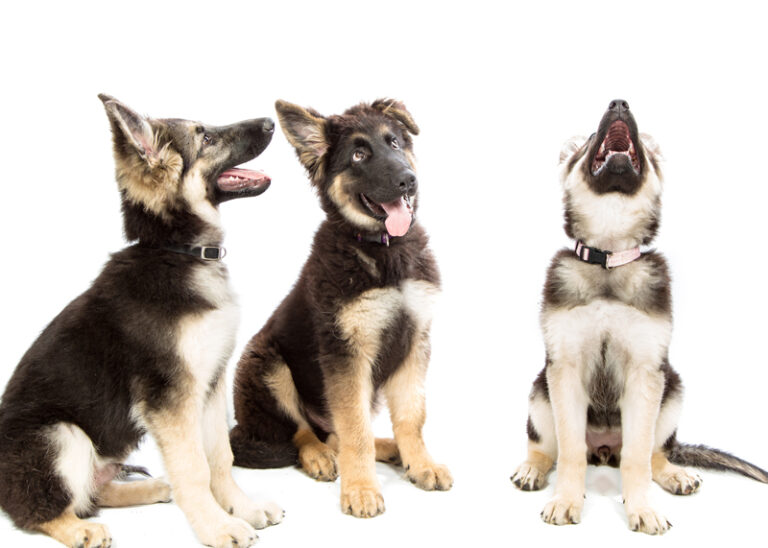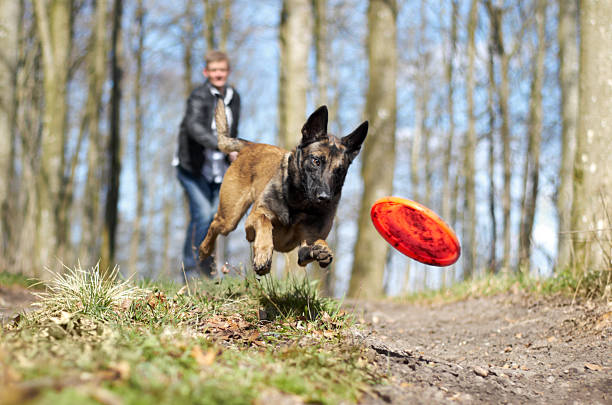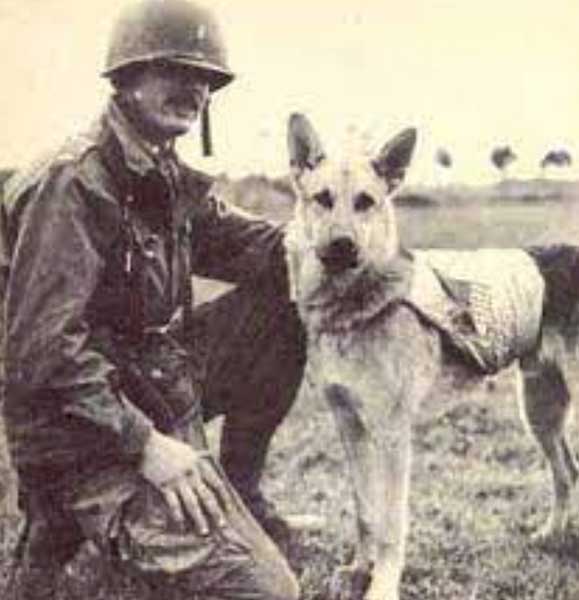German Shepherd Mixes: Exploring their Characteristics and Considerations
German Shepherd Mixes: Exploring their Characteristics and Considerations
If you’re considering adding a furry friend to your family, German Shepherd mixes can be a great choice. These mixes combine the traits and characteristics of German Shepherds with those of other breeds, resulting in unique and lovable companions. In this section, we will introduce you to German Shepherd mixes and explore the benefits they offer.
Introduction to German Shepherd Mixes
German Shepherd mixes, also known as designer dogs or hybrid breeds, are the offspring of a purebred German Shepherd and another breed. These mixes can inherit a combination of physical and behavioral traits from both parent breeds, making them truly one-of-a-kind.
One advantage of German Shepherd mixes is their versatility. By crossing German Shepherds with breeds like Labradors, Huskies, or Golden Retrievers, you can experience the best of both worlds. Each mix has its own distinctive characteristics that make them unique and appealing to potential owners.
Benefits of German Shepherd Mixes
German Shepherd mixes bring a range of advantages to the table, making them popular choices for many dog enthusiasts. Some benefits of owning a German Shepherd mix include:
-
Unique Appearance: German Shepherd mixes often exhibit a blend of features from both parent breeds, resulting in a visually distinctive appearance. From different coat colors and textures to varied body structures, each mix showcases its own individual charm.
-
Temperament Variety: The combination of German Shepherds with other breeds can produce a wide range of temperaments. While some mixes may inherit the loyal and protective nature of German Shepherds, others may exhibit the friendly and sociable traits of the other parent breed. This variety allows you to find a mix that aligns with your specific preferences and lifestyle.
-
Potential Health Benefits: Crossbreeding can potentially decrease the likelihood of certain health issues that purebred dogs may be prone to. By introducing genetic diversity, German Shepherd mixes may have a reduced risk of inheriting breed-specific health conditions.
-
Enhanced Trainability: German Shepherds are renowned for their intelligence and trainability. When combined with the characteristics of other breeds, German Shepherd mixes can exhibit enhanced trainability, making them eager learners and well-behaved companions.
When considering a German Shepherd mix, it’s important to research the specific mix you’re interested in to understand the potential characteristics and needs of the breed combination. Each mix will have its own set of considerations and requirements, so it’s essential to be well-informed before bringing a new furry family member home.
In the following sections, we will explore common German Shepherd mixes in more detail, including their physical appearance and temperament traits. We will also provide considerations to keep in mind when owning a German Shepherd mix, such as exercise and training needs, as well as health considerations. Let’s dive in and discover the unique world of German Shepherd mixes!
Common German Shepherd Mixes
German Shepherds are often crossed with other breeds, resulting in unique mixes that combine the characteristics of both parent breeds. These mixes can inherit a variety of traits from their German Shepherd lineage while also incorporating the characteristics of the other breed. Here are three common German Shepherd mixes:
German Shepherd Lab Mix
The German Shepherd Lab mix, also known as the “Sheprador,” combines the intelligence and loyalty of the German Shepherd with the friendly and outgoing nature of the Labrador Retriever. This mix often inherits the German Shepherd’s protective instincts, making it a great choice for families looking for a loyal and devoted companion.
| Breed | Characteristics |
|---|---|
| German Shepherd | Intelligent, protective, loyal |
| Labrador Retriever | Friendly, outgoing, good with children |
German Shepherd Husky Mix
The German Shepherd Husky mix, also called the “Shepsky” or “Gerberian Shepsky,” combines the striking appearance of the Siberian Husky with the intelligence and versatility of the German Shepherd. This mix can inherit the German Shepherd’s guarding instincts along with the Husky’s energetic and independent nature.
| Breed | Characteristics |
|---|---|
| German Shepherd | Intelligent, versatile, protective |
| Siberian Husky | Energetic, independent, striking appearance |
German Shepherd Golden Retriever Mix
The German Shepherd Golden Retriever mix, often referred to as the “Golden Shepherd,” brings together the intelligence and trainability of the German Shepherd with the friendly and affectionate nature of the Golden Retriever. This mix is known for its loyalty, making it an excellent choice for families and individuals seeking a devoted companion.
| Breed | Characteristics |
|---|---|
| German Shepherd | Intelligent, loyal, protective |
| Golden Retriever | Friendly, affectionate, good with children |
When considering a German Shepherd mix, it’s important to understand that the characteristics and temperament of the mix can vary based on the individual dog’s lineage and upbringing. It’s essential to research and understand the characteristics of both parent breeds to have a better understanding of what to expect from a specific mix. Remember to provide proper training, socialization, and care to ensure a happy and well-adjusted companion.
Characteristics of German Shepherd Mixes
German Shepherd mixes inherit a combination of traits from both the German Shepherd breed and the other breed involved in the mix. This leads to a wide range of physical appearances and temperament variations among German Shepherd mixes. Here, we will explore the common characteristics observed in German Shepherd mixes in terms of physical appearance and temperament.
Physical Appearance
German Shepherd mixes can exhibit a variety of physical appearances, depending on the other breed involved in the mix. While the dominant traits of the German Shepherd breed are often present, the characteristics inherited from the other breed can influence their appearance. Common physical features seen in German Shepherd mixes include:
- Size: German Shepherd mixes can range in size from small to large, depending on the other breed involved.
- Coat: The coat of a German Shepherd mix can vary in length, thickness, and texture. It can be short, medium, or long, and may have different colors and patterns.
- Ears: German Shepherd mixes may have the characteristic erect ears of the German Shepherd breed or floppy ears inherited from the other breed.
- Body Structure: The body structure of a German Shepherd mix can resemble that of a German Shepherd with a strong, muscular build.
It’s important to note that the physical appearance of a German Shepherd mix can vary greatly, even within the same litter, due to the genetic diversity resulting from the mix.
Temperament and Personality Traits
The temperament and personality of a German Shepherd mix can be influenced by both the German Shepherd breed and the other breed involved in the mix. However, certain traits commonly associated with German Shepherds often shine through. Some characteristics you can expect to find in German Shepherd mixes include:
- Intelligence: German Shepherds are known for their high intelligence, and this trait is often inherited by their mixes. They are quick learners and can excel in various training activities.
- Loyalty: German Shepherd mixes are typically loyal and devoted to their families. They form strong bonds and are protective of their loved ones.
- Alertness: Due to their strong protective instincts and alert nature, German Shepherd mixes are often vigilant and make excellent watchdogs.
- Energy Level: German Shepherd mixes tend to have a good amount of energy. Regular exercise and mental stimulation are important to keep them physically and mentally satisfied.
It’s important to remember that the specific temperament and personality traits of a German Shepherd mix can still be influenced by individual genetics and early socialization experiences.
Understanding the characteristics of German Shepherd mixes can help you determine if this crossbreed is the right fit for your lifestyle and preferences. Whether you are drawn to their physical appearance or intrigued by their combination of traits, German Shepherd mixes can make wonderful companions with the right care, training, and socialization.
Considerations for Owning a German Shepherd Mix
Owning a German Shepherd mix comes with certain considerations that are important to keep in mind to ensure the well-being and happiness of your furry companion. This section will explore three key aspects to consider when owning a German Shepherd mix: exercise and activity needs, training and socialization requirements, and health considerations.
Exercise and Activity Needs
German Shepherds, including German Shepherd mixes, are known for their high energy levels and need for regular exercise. To keep your German Shepherd mix physically and mentally stimulated, it is recommended to provide them with daily exercise and playtime. This can include activities such as long walks, jogs, hikes, or engaging in interactive games like fetch. Regular exercise not only helps to maintain their overall health but also prevents boredom and destructive behaviors that may arise from pent-up energy.
It’s important to note that the exercise requirements may vary depending on the specific mix and individual traits of your German Shepherd mix. For more information on exercise routines and activities suitable for German Shepherds, refer to our article on exercise routines for your German Shepherd.
Training and Socialization Requirements
German Shepherd mixes are intelligent dogs that thrive when provided with structured training and socialization opportunities from an early age. Training is essential to teach your German Shepherd mix basic obedience commands and proper behavior. Positive reinforcement techniques, such as rewards and praise, are highly effective in training these intelligent and eager-to-please dogs. For guidance on training challenges and solutions specific to German Shepherds, refer to our article on training challenges and solutions for German Shepherds.
Socialization is equally important for German Shepherd mixes. Early and ongoing socialization exposes them to different people, animals, and environments, helping them develop into well-rounded and confident dogs. Socializing your German Shepherd mix can be accomplished through controlled interactions with other dogs, visits to dog-friendly places, and exposure to various sights and sounds. Our article on socializing German Shepherds: a guide for owners provides valuable insights and tips on how to socialize your German Shepherd mix effectively.
Health Considerations
Like any other breed or mix, German Shepherd mixes can be prone to certain health issues. It’s important to be aware of potential health conditions that may affect your German Shepherd mix and take appropriate preventive measures. Regular veterinary check-ups, proper nutrition, and a healthy lifestyle are key to maintaining your dog’s overall health and well-being. For more information on common health issues and preventive care for German Shepherds, refer to our article on German Shepherd health guide: common issues and preventive care.
Additionally, certain German Shepherd mixes may inherit specific health concerns from their parent breeds. Researching the health history and genetic background of the parent breeds can provide insights into potential health risks. If you are considering adopting a German Shepherd mix, consult with a reputable breeder or rescue organization to gather information about the health of the parent dogs.
By considering the exercise and activity needs, training and socialization requirements, and health considerations of owning a German Shepherd mix, you can provide a loving and fulfilling environment for your furry companion. Remember to always prioritize their well-being and seek professional advice whenever necessary.
Finding a German Shepherd Mix
If you’ve decided that a German Shepherd mix is the perfect addition to your family, you have a few options for finding your new furry companion. In this section, we will explore the considerations of adoption versus buying from a breeder, and provide guidance on researching and choosing a responsible breeder as well as evaluating rescue organizations.
Adoption vs. Buying from a Breeder
When searching for a German Shepherd mix, you may come across both adoption opportunities and breeders selling puppies. Each option has its own advantages and considerations.
Adoption: Adopting a German Shepherd mix can be a rewarding experience. By adopting, you provide a loving home to a dog in need. Many German Shepherd mixes end up in shelters or rescue organizations due to various circumstances, such as changes in their previous owners’ lives or strays found on the streets. By adopting, you are giving a second chance to an animal and helping to reduce the number of dogs in shelters.
Buying from a Breeder: If you choose to buy a German Shepherd mix from a breeder, it’s essential to do thorough research and choose a responsible breeder. Reputable breeders prioritize the health and well-being of their dogs and aim to produce healthy puppies with desirable traits. They often have extensive knowledge of the breed and can provide guidance and support to new owners. However, it’s crucial to ensure that the breeder follows ethical breeding practices and prioritizes the health and welfare of their dogs.
Researching and Choosing a Responsible Breeder
If you decide to buy a German Shepherd mix from a breeder, it’s important to research and choose a responsible one. Here are some key considerations:
-
Reputation and Recommendations: Seek recommendations from trusted sources, such as local breed clubs or veterinarians, who can provide insights into reputable breeders in your area. Online forums and breed-specific websites can also be valuable resources for finding reputable breeders.
-
Health Testing and Certifications: Responsible breeders conduct health tests on their breeding dogs to ensure they are free from genetic health conditions that may be prevalent in the breed. They should be transparent about the health history of the parent dogs and provide appropriate certifications for health clearances.
-
Ethical Breeding Practices: Responsible breeders prioritize the well-being of their dogs. They provide proper socialization, mental stimulation, and a clean and safe environment for their dogs and puppies. They should be knowledgeable about the breed and be willing to answer any questions you may have.
-
Visit the Breeder: Arrange a visit to the breeder’s facility to meet the parent dogs and observe the living conditions. This allows you to assess the overall health and temperament of the dogs and ensure that they are raised in a caring and loving environment.
Evaluating Rescue Organizations
If you decide to adopt a German Shepherd mix, there are numerous rescue organizations dedicated to finding loving homes for these dogs. When evaluating rescue organizations, consider the following:
-
Reputation and Reviews: Research the reputation of the rescue organization by reading reviews and testimonials from previous adopters. Look for organizations that have a positive track record and prioritize the well-being of their dogs.
-
Adoption Process: Understand the adoption process and requirements set by the rescue organization. This may include completing an application, undergoing a home visit, and paying an adoption fee. Ensure that the organization has a thorough screening process to match you with a suitable dog that fits your lifestyle and preferences.
-
Transparency and Health Information: Reputable rescue organizations provide detailed information about the dog’s background, health history, and any known behavioral issues. They should be transparent about any existing medical conditions or behavioral challenges to help you make an informed decision.
-
Support and Follow-Up: A good rescue organization will provide support and guidance throughout the adoption process and even after you bring your new German Shepherd mix home. They should be available to address any questions or concerns you may have and be committed to the well-being of the dog.
Whether you choose to adopt or buy from a breeder, remember that responsible ownership and providing a loving and caring home are essential for the well-being of your German Shepherd mix. Take the time to research and make an informed decision that aligns with your values and lifestyle.
Common German Shepherd Mixes
German Shepherds are a popular breed known for their intelligence, loyalty, and versatility. They are often crossed with other breeds to create unique and wonderful mixed breeds. If you’re considering a German Shepherd mix, there are several common combinations to explore. Let’s take a closer look at three popular German Shepherd mixes: German Shepherd Lab Mix, German Shepherd Husky Mix, and German Shepherd Golden Retriever Mix.
German Shepherd Lab Mix
The German Shepherd Lab Mix combines the German Shepherd with the Labrador Retriever. This mix often inherits the intelligence and loyalty of the German Shepherd, as well as the friendly and outgoing nature of the Labrador Retriever. They tend to be highly trainable and make excellent family pets.
| Characteristics | German Shepherd Lab Mix |
|---|---|
| Size | Medium to large |
| Weight | 55 – 95 pounds |
| Coat | Short to medium length, dense, and may vary in color |
| Temperament | Intelligent, loyal, friendly, and energetic |
| Exercise Needs | High exercise requirements, including daily walks and mental stimulation |
To learn more about Labrador Retrievers, visit our article on Labrador Retriever characteristics.
German Shepherd Husky Mix
The German Shepherd Husky Mix, also known as the Gerberian Shepsky, is a cross between the German Shepherd and the Siberian Husky. This mix often showcases a striking appearance with a blend of the German Shepherd’s athleticism and the Husky’s beautiful coat. They are known for their intelligence and independent nature.
| Characteristics | German Shepherd Husky Mix |
|---|---|
| Size | Medium to large |
| Weight | 45 – 88 pounds |
| Coat | Dense double coat, may have various colors and markings |
| Temperament | Intelligent, independent, energetic, and sometimes stubborn |
| Exercise Needs | High exercise requirements, including daily physical activity and mental stimulation |
To learn more about Siberian Huskies, visit our article on Siberian Husky characteristics.
German Shepherd Golden Retriever Mix
The German Shepherd Golden Retriever Mix, also known as the Golden Shepherd, is a cross between the German Shepherd and the Golden Retriever. This mix combines the German Shepherd’s protective nature with the Golden Retriever’s friendly and gentle demeanor. They are often loyal family companions and can excel in various activities.
| Characteristics | German Shepherd Golden Retriever Mix |
|---|---|
| Size | Large |
| Weight | 55 – 85 pounds |
| Coat | Medium to long length, dense, and may range in color from light to dark |
| Temperament | Intelligent, loyal, friendly, and eager to please |
| Exercise Needs | Moderate to high exercise requirements, including daily walks and playtime |
To learn more about Golden Retrievers, visit our article on Golden Retriever characteristics.
When considering a German Shepherd mix, it’s important to remember that each individual dog may inherit different traits from its parent breeds. It’s recommended to spend time with the specific mix you’re interested in and learn about their unique needs and characteristics. Additionally, ensure that you have the time, resources, and commitment to meet their exercise, training, and socialization requirements.






